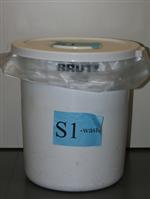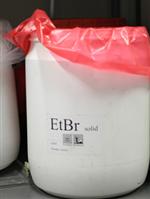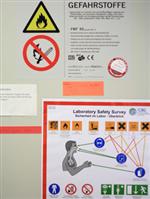Team:BIOTEC Dresden/Safety
From 2010.igem.org

Safety

All the members of the iGEM BIOTEC team participated in mandatory safety briefing concerning the good laboratory practices and the disposal of the biological, organic-chemical and EtBr waste by the institutional safety officer prior to the beginning of project at The Max Planck Institute of Molecular Cell Biology and Genetics, Dresden.

As working with natural or recombinant biological materials was inevitable part of our experiments, the Biosafety facility of The Max Planck Institute of Molecular Cell Biology and Genetics, Dresden was closely monitoring all of our research activities and took great care to ensure that all procedures carried out in the lab are in accordance with guidelines of Central Commission for Biological Safety, Germany (Zentrale Kommission für die Biologische Sicherheit).
SensorBricks mainly consists of parts and plasmid constructions with simple genetic modifications. The E.coli strain-DH5 alpha was the standard laboratory strain without any health risks and potential pathogenicity. There were no intentional or accidental releases of any reagents that will pose biosafety threats to the environment, individuals of the project or the general public.

None of our biobricks parts code for hazardous molecules. The transformed bacteria and constructed plasmids are limited to laboratory uses only. They are strictly considered as S1 waste and treated by the waste management facility appropriately.
In future, iGEM committee must keep track of all the synthetic DNA sequence synthesized through out the project and not just the final assembled parts.Also, to avoid any intentional design of parts which codes for deadly pathogenic products. The continuous monitoring will ensure that whole project is running safely and there is no foul play in the safety issues of unnatural gene and products.
 "
"
